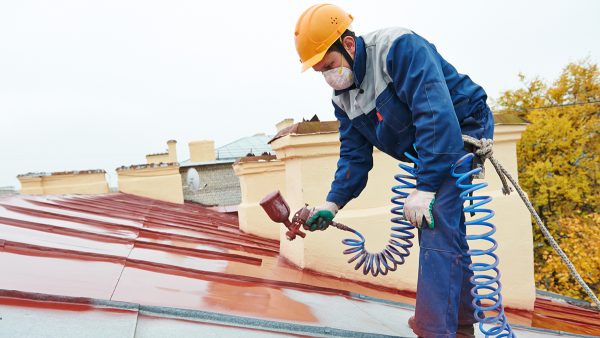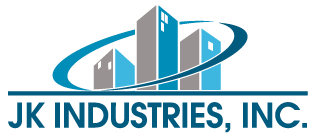What is a good industrial paint?

Your average house paint isn’t going to work for most commercial applications.
Take a look at the siding on the houses on your street: after only a few years, that paint will start to fade or chip. Now think about how much industrial paint has to go through.
It’s exposed to harsh chemicals, heavy traffic, or constant weather—maybe all three. It has to keep its sheen, protect the material beneath and hold structural integrity. Industrial paint has to be different from residential paint. That means more expensive and sometimes more challenging to apply. But it’s a necessity, not a luxury. So how do you pick industrial paint?
Characteristics of good industrial paint
- Color-fast: Good industrial paint holds its color longer than residential paint. Pigments for industrial applications often come in powder form and are added to a mixture after its formulation. There are two types: organic and inorganic. Organic pigments hold their color better but cost more. Inorganic pigments are not as bright as organic. Both will work.
- Durable: Industrial paints stand up to outside influences better than regular paint. They’re often made of a resin that forms an impenetrable layer, either epoxy or polyurethane.
- Protective: Outdoor paint isn’t just meant to add color. It’s armor for your structure, meant to keep the elements out. Regular house paint will help with the elements, but an industrial coating is designed to form a cohesive layer that bonds with the material underneath, keeping out water and other factors that could create trouble down the line.
Types of industrial paint
Industrial coatings come in several varieties and are useful for different applications. Here are a few possibilities.
- Epoxy: Comes as a two-part solution of curing agent and polymer mixed together. It may be combined with primers and topcoats for better performance. Highly resistant to heat, abrasion, and weather.
- Polyurethane: Maintains color and often has a high gloss. It works well outdoors. Some coatings have better UV resistance than others—check before you purchase. It can be used as a topcoat for other coatings like epoxy.
- Acrylic: Often used as a primer and increases corrosion resistance.
- Zinc: Creates a dual-strength barrier on steel (both polymeric and galvanic), which can increase durability.
- Alkyd: Often used for underwater or other applications where the surface will see a lot of water coverage. Slow-drying.
As you can see, choosing the right industrial paint for your specific job can be complicated. JKI can help. Contact us today for a free assessment.
